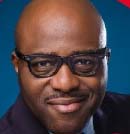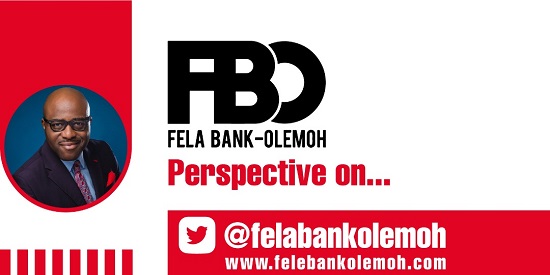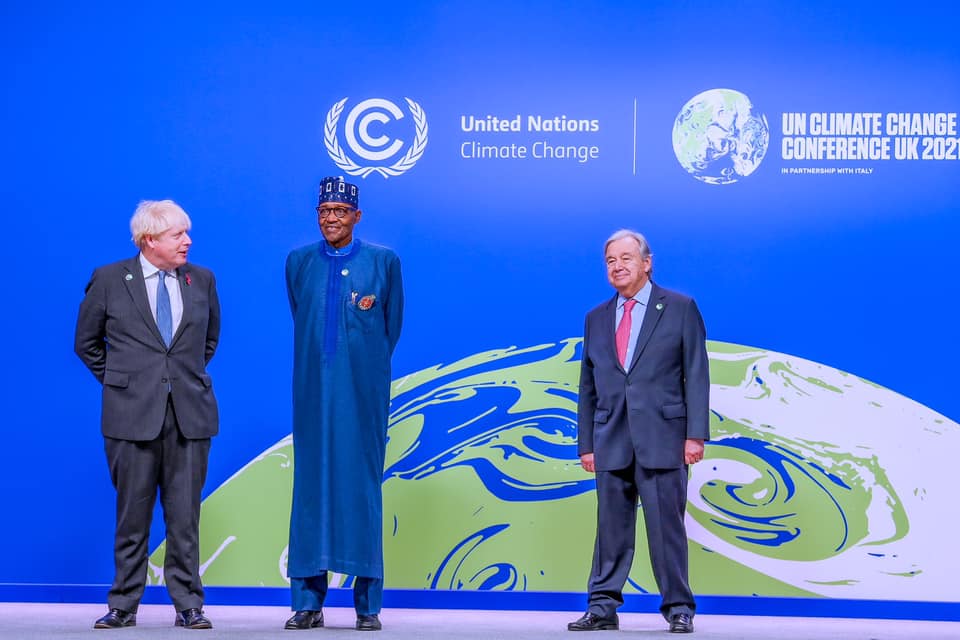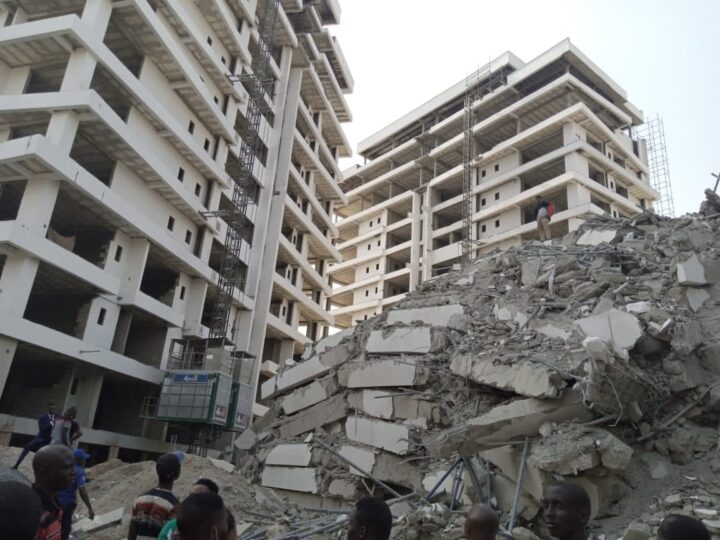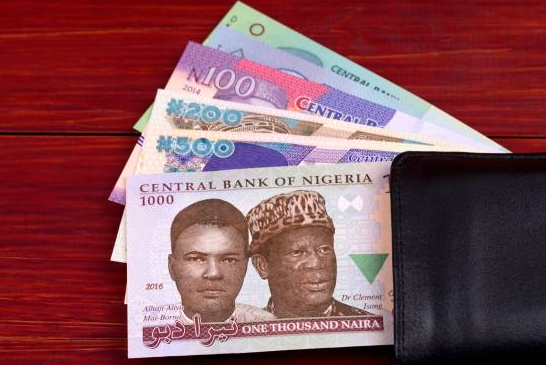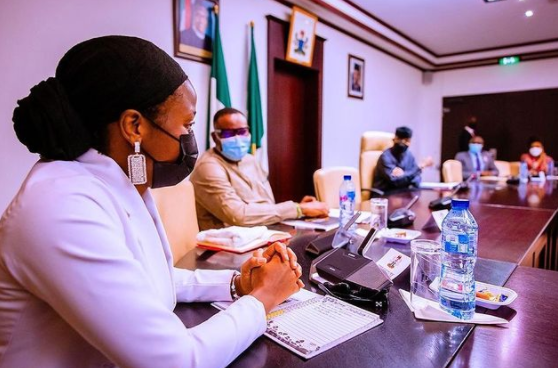Hi there,
I would like to share my thoughts on Education Reforms in Nigeria. As the President’s Senior Special Assistant for Education Interventions, I work with states and development partners to fashion out programs that speak to our peculiar educational challenges. As a country, our educational history is replete with different types of education interventions. Some have been successful and I must say we’ve had our fair share of failed programs too.
“Education is the most powerful weapon which you can use to change the world” – Nelson Mandela
Our Nation is a country with a population of over 200 million people. We are the most populous black nation on earth with Africa’s largest economy – endowed with numerous natural resources. However, our most valuable resource remains our human capital. But the question is, how well are we doing in nurturing and developing our Human Capital Resource?
Advertisement
In terms of the Human Development Index (HDI) – which is a summary measure used by the United Nations for assessing long-term progress in three basic dimensions of human development:
– A long and healthy life
– Access to knowledge
Advertisement
– A decent standard of living.
Nigeria was measured at 0.539 points in 2019, which ranked us 161 amongst 189 countries. It is clear that we still have a lot of work to do in this area. To change our narrative, one of the most significant investments our country can make is to invest both its financial and political resources in bold and dispassionate education reforms.
Our Reality
● One in five out-of-school children globally is in Nigeria, making up about 20% of children that are not getting any kind of formal education globally (UNICEF).
Advertisement
● 60 million – or 30% of the Nigerian population – are illiterate. (Ministry of Education).
● In Nigeria, the average pupil to teacher ratio is 49 (UNESCO).
• According to the HCI (2018), a child born in Nigeria will acquire, on average, 8.2 years of school by the age of 18. However, when the years of school are adjusted by the quality of learning – Nigerians are learning the equivalent of only 4.3 years of school.
So, Why Do We Need Bold And Revolutionary Reforms?
Looking at our reality in the education sector, it’s apparent that the current system isn’t meeting the needs of Nigerians. It is also evident that our education system needs revolutionary reforms. We cannot just tweak the current system – We Need To Reform It!.
Advertisement
What Are We Doing Now?
The current administration has taken some bold steps in the education space.
Advertisement
Teachers;
– A Special Salary Scale.
Advertisement
– Free Tuition for their wards.
– Automatic employment for graduate teachers.
Advertisement
– Upward review of the retirement age from 60 to 65 years.
– Years of service increased from 35 to 40 years.
Others;
– Intervention funds for universities.
– Approval of 15 university online learning centers.
– School feeding programs that have helped to increase enrolments in schools across the country.
– Allocation of N742.5 billion, representing 5.6% of the 2021 budget, to the educational sector.
– The Better Education Service Delivery for All (BESDA) which is a program established by the World Bank in collaboration with states and thefederal government to increase equitable access for out-of-school children, improve literacy in focus states and strengthen accountability for results in basic education.
However, we still have a lot of work to do. The general consensus amongst education stakeholders is that successive administrations (including ours) have not been bold enough to carry out the necessary reforms that would transform our education system – I agree. The truth is, given the challenges facing our education system, if we are serious about changing our narrative – we are condemned to taking steps that will elicit significant pushback, resistance and heavy criticism.
In recent times, Mallam Nasir El-Rufai, the governor of Kaduna state took bold and decisive steps to change the narrative of education in his state. In 2015, he declared a state of emergency in the education sector. As a result, proficiency tests for teachers were carried out across the state. A significant number of teachers failed and they were laid-off. That decision was condemned by labour groups, education stakeholders, political parties and even some government officials. The general narrative was that this decision would cost him his second term re-election. His response was;
“If losing the second term in office will give Kaduna State children a future with better primary education, I am ready to let it go.”
Something we can learn from Governor El-Rufai is that to truly change things, you must be bold and courageous because you will definitely face stringent opposition. However, if you stand firm and people see that the reform is – well thought through and articulated, being implemented dispassionately and yielding desired results – they will ultimately rally behind you.
Another key intervention I was privileged to lead was ReadySetWork (RSW). RSW was a 13-week entrepreneurship and employability program that prepared final year students in all Lagos-based tertiary institutions for immediate entry into the workforce. The program commenced in 2016 with a pilot of 500 students, 1 center and 198 students placed in various internships. As of 2018, we scaled up to 25,000 students, 3 centers and over 1,000 of those students placed in internships across the state. This program positively impacted the lives of graduates in Lagos state.
Recently, the United Nations International Children’s Emergency Fund (UNICEF) in collaboration with the Nigerian government launched Generation Unlimited (GenU) Nigeria on the 26th of July 2021. GenU Nigeria aims to reach 2 million young people aged 10-24years by 2023 and 20 million by 2030 with education, skills training, employment, entrepreneurship and empowerment. I am excited to be one of the key stakeholders driving this intervention.
I must also applaud states like Edo, Kwara, Anambra among others, for the different interventions they are carrying out. However, the question is: Are we really doing enough? Are these interventions bold and big enough to change our educational sector? Will these interventions stand the test of time and be continued by future administrations?. Sadly, the answers to some of the questions above may not be evident to us all for another decade or so. In the unfortunate event that the answers to these questions are negative, then we would be in a more precarious state than we are now and that would be disastrous.
A trip down memory lane unfolds one intervention that was successfully implemented decades ago – Chief Obafemi Awolowo’s Free Education Reform. This is one of the most courageous, bold, innovative and revolutionary reforms in the education sector to date. It was a unique approach to addressing educational difficulties in Western Nigeria. However, this intervention was not without certain inherent challenges, opposition and open hostility but the dedication, determination and commitment of the stakeholders to the project was critical to its success. I would be evaluating the reform’s background, the pushbacks it faced and its results.
Background
In 1952, Chief Obafemi Awolowo proposed and presented a Free Education Reform, which was launched in January 1955. It was one of the key agendas of the Western Nigerian political party – Action Group. From 1952 to 1954, the administration took several steps to meet its 1955 deadline. They initiated a large-scale teacher-training program, started extensive construction of primary and secondary schools across the region and made adequate provision for books and writing materials for the incoming students.
Pushbacks
This reform faced stiff opposition. Many people felt that the government of the day was overstepping its boundaries by imposing tax liabilities on parents to fund the program and for also making the program compulsory. This meant that parents would be held liable if they didn’t send their children to school. Wow!, at that time – this was unthinkable. In the 1950s, children were seen as legitimate and necessary contributors to the economic wellbeing of the family. Children served as farmhands, helpers in market places, workshops etc.
Key members of the government and education stakeholders were also opposed to the reform because of its scale and the huge resources that had to be allocated to it. Looking back at this reform, the level of hostility it encountered is astounding. However, Chief Obafemi Awolowo and his colleagues stood firm, remained undaunted and launched the program in 1955; the rest, as they say, is history.
Results
The launch of this scheme was a watershed moment in the educational history of Nigeria and indeed Africa. Its accomplishments were truly outstanding;
1954-1958
– The number of primary schools in the region increased by 80.5 %, from 3,550 to 6670.
– The number of secondary schools increased by 470%, from 68 to 389.
– The number of elementary school students surged by 128%, from 456,600 to 1.04 million.
Other Fallouts
– The reform ushered in a shift in people’s perception of female education. By 1966, 10 years after the program’s inception, nearly two out of every five students in Western Nigeria were female!
– People in the region enjoyed a higher share of personal advancement and modernization as a result of the reform.
– The reform established a larger pool of applicants from which secondary schools and teacher training colleges could recruit.
In conclusion, there is no disputing the fact that the Free Primary Education intervention in Western Nigeria made a considerably remarkable impact and left an indelible imprint in the history of education in Western Nigeria and the country as a whole. This reform led to a faster-growing middle-class, which benefited – higher education, the labour market and the economy.Furthermore, many more states in the country benefited and have been influenced positively by the impact of this intervention to date. This reform has also benefited me, the author of this article. It’s been described as;
“The boldest and perhaps the most unprecedented educational scheme in Africa South of the Sahara”
In the second part of this article, I would be sharing my thoughts on some tough questions we need to answer if we are going to radically transform education in Nigeria.
Till the next time we meet here, remember we all have “A Role to Play.”
Bank-Olemoh is the Senior Special Assistant to the President on Education Interventions.
Views expressed by contributors are strictly personal and not of TheCable.
